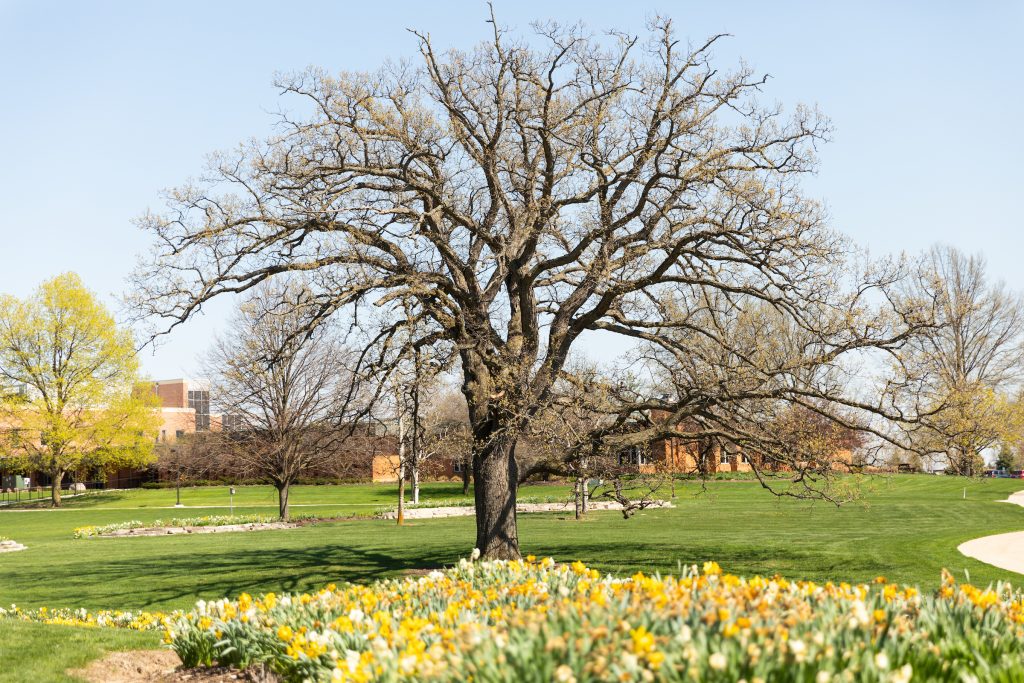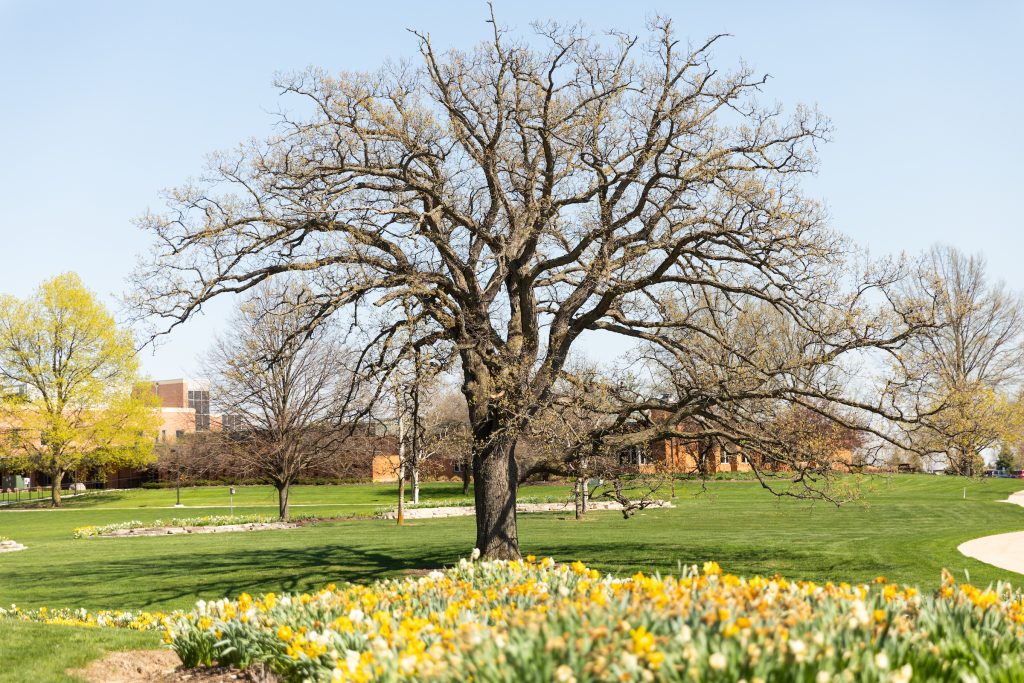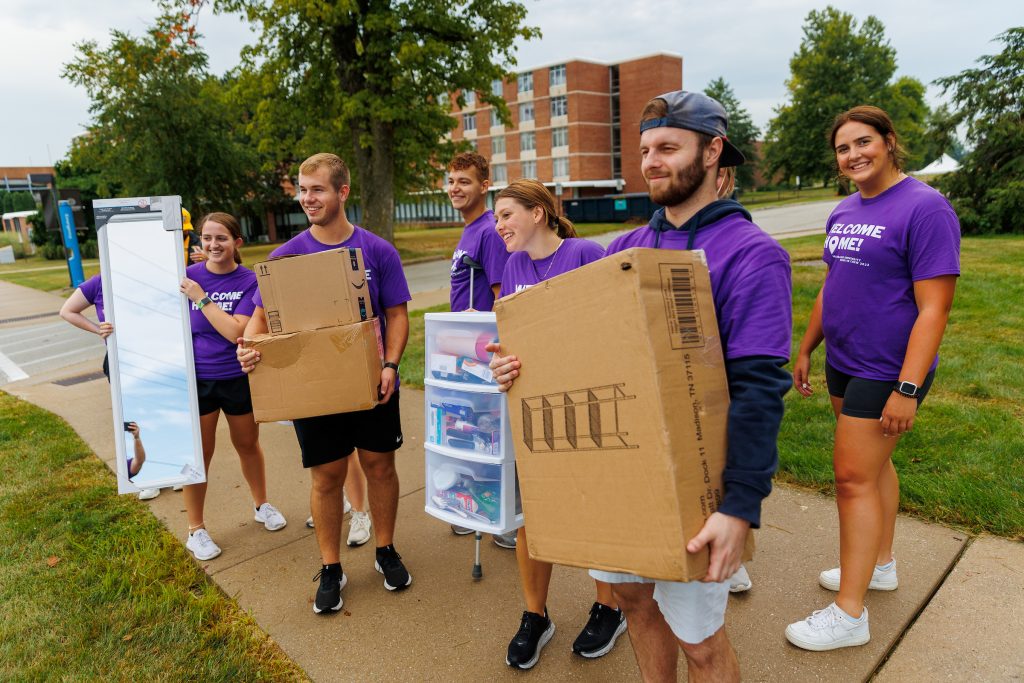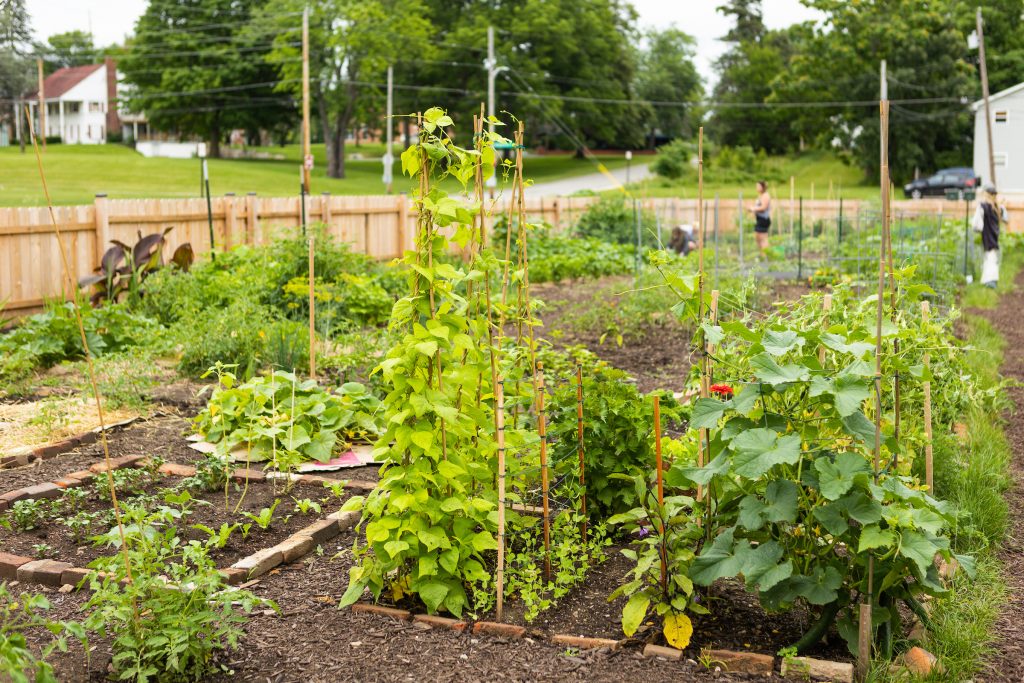A Sustainable Campus Behind the Scenes
There are plenty of ways that Valparaiso University encourages sustainability that everyone on campus can see. The move-in day recycling program resulted in literal tons of cardboard avoiding landfills, and tailgaters at Valpo Football home games are likely familiar with the volunteers that distribute recycling bags leading up to kickoff. The James S. Markiewicz Solar Energy Research Facility — where students and professors research sustainable, solar power — routinely turns the heads of those who drive past, and some may have even noticed the glimmer of solar panels helping to power the Gellersen Engineering and Mathematics Center.
What many people don’t realize is that those projects, structures, and initiatives only scratch the surface of everything that Valparaiso University does to maintain ethical stewardship of the planet. From the lights that illuminate Valpo’s classrooms to the supplies that keep campus clean, the University is always looking for more ways to cut down on waste and promote sustainability.
One area where the University has made a significant impact Is with waste disposal. Prior to 2023, campus’s numerous trash cans and recycling bins were emptied and had their liners replaced on a daily basis, regardless of how full they were, resulting in plastic waste from the bags alone making up 15% of the total waste on campus.
After an internal audit in the spring and summer of 2022, the campus reduced the number of trash cans (some were less than 10 feet apart) by 210. The bag removal policy was also changed so that only plastic bags that are at least half full are removed for disposal. The move has been estimated to save the University over $13,000 in trash bags per year.
Many can’t imagine going through a work day without coffee, but disposable k-cups have also been a significant contributor to the University’s plastic waste. Just this semester, many offices have been given special receptacles to ensure that these items are recycled via a specialized program.
Another issue related to waste management is the reallocation of electronics, scrap metal, and donatable items during the student body’s moving out process at the end of the school year. Volunteers sort through the accumulated debris of the average year to find discarded TVs, lamps, appliances, and other electronic devices that require special disposal. They also gather as much food as they can before it’s thrown out, donating everything they can — roughly 400 pounds of nonperishable items last summer — to Hilltop House. Furniture, clothing, and other items are also collected by Goodwill and repurposed.
Not everything at Valpo done in the name of sustainability is about reducing the amount of outgoing waste. Energy audits have been performed on all campus buildings to identify ways in which their power usage can be lessened. The energy audit program includes (but is not limited to) tracking metered utility usage, walking the building to make visual observations, looking into occupancy hours and space use, etc.
In the past, one substantially unnecessary use of energy has been the heating and cooling of unoccupied buildings during academic breaks. Facilities Management has now put a temperature setpoint program in place, which lowers or raises building temperatures during breaks, depending on the weather outside. Another way Valpo saves building energy is through the gradual upgrading of HVAC equipment and lighting fixtures. Almost all incandescent bulbs have been eliminated on campus, and older CFL fixtures are constantly being retrofitted or replaced with energy efficient LEDs. These new fixtures can last over ten years without maintenance, which saves on labor costs as well as electric usage.
The cleaning supplies used to keep campus tidy have also been adjusted. Rather than using single-use bottles of cleaner or cartridges of hand soap, the University has secured cleaning concentrate refill stations for almost all products, refillable hand soap, and cloth rags rather than paper towels.
Beyond mitigating waste and lowering energy use, Valparaiso University has a number of policies and initiatives regarding the care of plants, grounds and infrastructure. Supervisors of the grounds and landscaping crew are required to go through 12 hours of stormwater pollution prevention training each year, to ensure that unwanted material doesn’t end up in the storm drains. Chemical weed, pest and fungus killers are limited as much as possible both indoors and out in favor of hand-pulling and other, more health-conscious means.
Valparaiso University is also home to two garden areas: the medicinal herb garden and the community garden. The former houses plants used in traditional and folk medicine, and are the subject of research by the University’s biology and chemistry departments. All members of the Valpo community are welcome to come harvest and use the plants grown in the herbal garden. The community garden is a near-10,000 sq. foot space on which students, faculty, staff and members of the community are able to buy and maintain plots. No chemicals or pesticides are allowed, only completely organic methods of growth and maintenance.
Merlin, the most iconic tree on the Valpo campus — now over 150 years old and at the end of its species’ lifespan — has also received the attention of Valpo’s sustainability efforts. The Biology Club, led by Laurie Eberhardt, Ph.D., professor of biology and chair of the biology department have harvested approximately 100 acorns from the tree, and are growing the seedlings in the community garden until they are large enough to be moved to their permanent positions.
Students get in on the action of sustainability through on-campus and national competitions to reduce energy usage and waste. The annual Campus Conservation Contest runs through tomorrow, and is an annual competition between Residence Halls to reduce water, electricity, and gas use. Meanwhile, the Campus Race to Zero Waste promotes waste reduction by encouraging students to generate less trash, recycle more and reduce food waste. In 2023, Valparaiso University won the Zero Waste Case Study Category.
Competition or not, sustainability and responsible stewardship of the planet are critical parts of Valparaiso University’s identity and plans for the future. As both the University and the world around it continue to grow and evolve, Valpo students, faculty, and staff will continue to find new ways to reduce waste, cut back on energy consumption, and tend to the land on which the campus sits. If your department would like a presentation about campus sustainability, or if you have any questions, feel free to reach out by emailing sustainenergy@valpo.edu.



